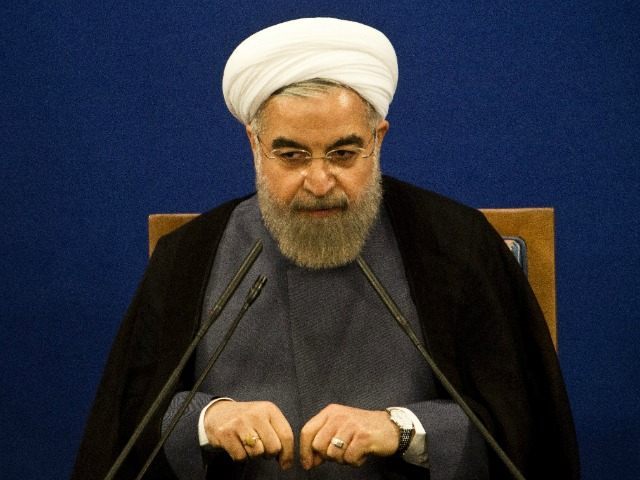Hassan Rouhani, Iran’s figurehead president who serves the interests of Ayatollah Khamenei, delivered a verbal tirade against the Saudi government on Tuesday after Riyadh executed a prominent Shiite cleric on New Year’s Eve.
Following the execution of Nimr Baqir al-Nimr, who had been accused of conspiring to overthrow the House of Saud, rioters in Tehran firebombed and ransacked the Saudi consulate and embassy there, causing a major diplomatic disaster. Disgusted with the Iranians’ lack of protective measures for its embassy facilities, Saudi Arabia officially ended diplomatic ties with Iran. Many of the Saudis’ Sunni allies followed, with Sudan, the UAE, Kuwait, and others castigating Tehran in public for its meddling in their internal affairs.
Additionally, the UN Security Council condemned the rioting in the “strongest terms” and called on the Islamic Republic “to protect diplomatic and consular premises against any intrusion or damage.”
Rouhani said, “Of course, the Saudi government, in order to cover up its crime of beheading a religious leader has resorted to a strange measure and has severed its ties with the Islamic Republic, whereas, undoubtedly, such moves will never hide that great crime” supposedly committed by Riyadh, in comments picked up by state-controlled PressTV.
The Iranian President, who holds very little power, made his comments in a meeting with Danish Foreign Minister Kristian Jensen.
Defending the rage of the Iranian public, he said, “It is only natural that a crime against Islamic and human rights will be met with reaction from public opinion.”
“Criticism should not be responded to with beheading,” Rouhani, the leader of a country that is committing record executions of its own citizens, said. “We hope that European countries, which always react to issues of human rights, would act on their human rights-related obligations in this case, too.”
While Iran has criticized Saudi Arabia for its treatment of its Shiite minority, human rights groups have pointed out that Tehran is sustaining the widespread persecution of its Christian minority. Leaders of minority faiths are consistently arrested on suspect charges and have been denied the freedom to practice any religion other than the Shiite sect of Islam.
This year, the Iranian government continued its policy of rounding up several Christian converts just days before the Christmas holiday.
“By making these arrests around this time the government hopes to intimidate converts by threatening them with heavy punishments … so that they would either leave the country or stop their [religious] activities,” a spokesperson for the Alliance of Iranian Churches told the International Campaign for Human Rights in Iran.

COMMENTS
Please let us know if you're having issues with commenting.